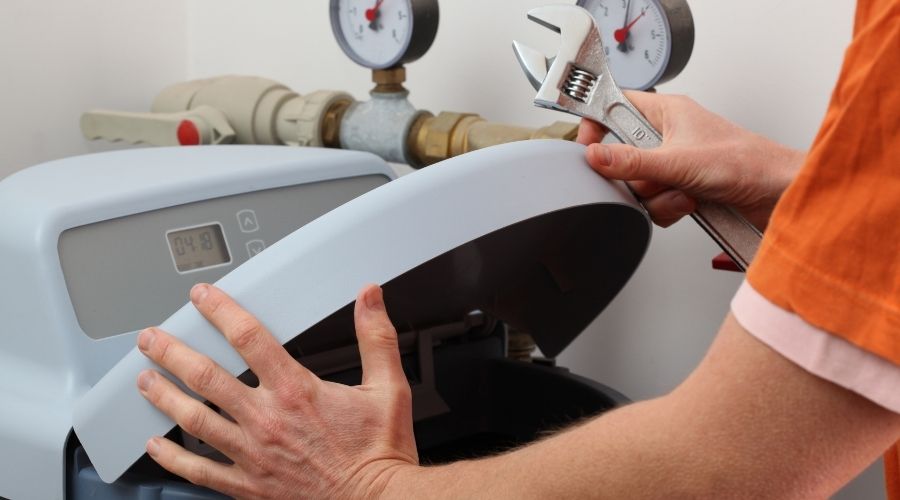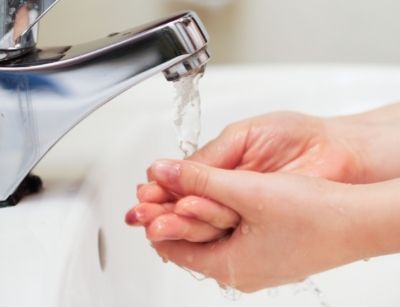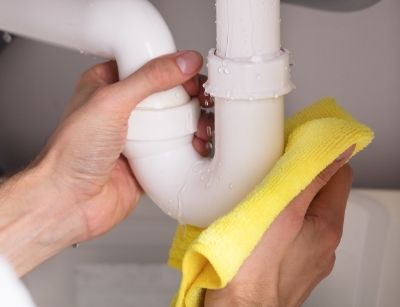
How To Tell If Your Home Has Hard Water
Not a lot of homeowners give much thought to the hardness or softness of their home’s tap water. Generally, as long as it’s clear and safe to drink - either straight from the tap or through a filter of some kind - it’s good enough for most people. But for the sake of the home’s plumbing, it’s worth knowing just how hard or soft the water supply is.
Hard water is simply water that contains an above-average concentration of dissolved minerals - calcium and magnesium in particular. These minerals may have some minor health benefits, but they can wreak havoc on a home’s plumbing system over time. For this reason, many homeowners install a water softener to remove these minerals from the water supply. Read on to learn about the effects of hard water and how to tell if it might be time to install a water softener.
Visual Evidence
The first and most obvious sign of hard water is the visible trace it tends to leave behind wherever it goes. This is great in terms of detecting it, but it’s not exactly ideal for the home’s overall aesthetic. Two of the most common visual indicators of hard water are water spots on dishes and silverware or a cloudy residue on glassware.
Excessive soap scum buildup is another common indicator - the minerals in the water bind to soap, giving it a stubbornly sticky quality. It rinses off of skin fairly easily, but wherever it splashes, it will stay unless rinsed off. This chalky residue accumulates most easily on shower walls and can be very hard to scrub off once dry. Crusty mineral deposits may also form on faucets and fixtures (particularly on or around the spigot) from the hard water itself.
The Hard Water “Feel”

Hard water not only leaves behind visual cues, but it also has a distinctive feel to it. It may seem normal for those who have always had hard water, but it’s a definite symptom of having high mineral content in the water. Perpetually dry or itchy skin is one common sign of hard water. This is because the water leaves a mineral residue on skin which interferes with the body’s natural oils.
The same principle applies to hair, so unusually dry or brittle hair after a shower may also point to hard water. Similarly, dissolved minerals in hard water will stick to laundry, giving clothes, towels, and bedding a scratchy or stiff feeling.
 Pipe Problems
Pipe Problems
Since the minerals in hard water tend to stick to every surface they touch, it shouldn’t come as a surprise that they stick to the insides of pipes, fixtures, and appliances as well. Eventually, they can accumulate to the point of severely constricting water flow. The increased pressure can also lead to leaks and burst pipes.
The minerals can also corrode copper piping over time, resulting in pinhole leaks. Mineral buildup can cause valves to seize and damage or hinder the performance of appliances like water heaters, refrigerators, washing machines, dishwashers, and even coffee makers. If the home is experiencing low water pressure, leaks, appliance issues, discolored water, or whining sounds coming from the pipes when water is turned on, then there’s a good chance it’s due to hard water.
Homeowners who have observed any of the signs listed above would do well to consult with a reputable local plumber to discuss the possibility of installing a water softener.
About Oliver’s Plumbing
Oliver’s Plumbing is a family-owned and operated local business with a passion for providing honest and reliable service with a smile. They offer 2-year parts and labor warranties and a complete satisfaction guarantee on every single job. Call Oliver’s today for expert water softener installation and consultation in Sun Praire, WI!


